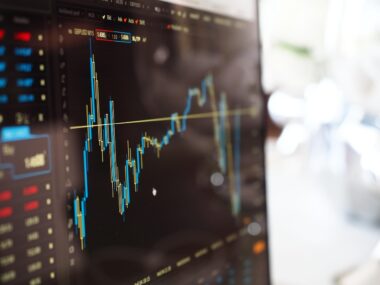The Relationship Between Overconfidence and Trading Frequency
Overconfidence in trading refers to the assumption that one possesses superior knowledge or skill in predicting market movements. This tendency is prevalent among many traders, leading them to engage in more frequent transactions. Research indicates that individuals who overestimate their competence are likely to increase their trading frequency, resulting in higher risk exposure and potential losses. This phenomenon stems from psychological traits that compel traders to act on their confidence rather than on analytical justification. Investors, in their overconfidence, often ignore market signals or fundamental analyses, focusing instead on their perceived strengths. Furthermore, higher trading volumes generated by overconfident traders can increase market volatility, influencing prices and creating unstable market conditions. Studies suggest that such behavior is not only driven by self-assurance but may also be exacerbated by social influences or feedback loops stemming from past successes or failures. The interactions between trading frequency and overconfidence serve as essential areas for future research, particularly concerning their implications for both market efficiency and individual investor outcomes. Recognizing these patterns can aid in developing mechanisms to mitigate excessive trading and aligned risk profiles for better market performance.
Understanding the psychology behind overconfidence is crucial in the realm of behavioral finance. Overconfidence may be defined as a behavioral bias that results in an inflated belief in one’s knowledge and abilities. This cognitive bias can lead traders to make decisions based on an unrealistic self-assessment of their skills. For instance, research has shown that when traders reflect on their past trades, they often only recall their successful transactions while downplaying losses. This selective memory helps to bolster their confidence and encourages them to participate more actively in the market. The psychological phenomenon of overconfidence affects both novice and experienced traders but manifests differently among them. New traders may approach the market with naive optimism, while seasoned investors may exhibit overconfidence based on historical successes. This tendency can compel both groups to trade more frequently, believing in their capacity to exploit market inefficiencies. However, the reality often contradicts their beliefs, leading to costly mistakes and portfolio discrepancies. Consequently, it is essential for traders to engage in self-reflection and adopt a more realistic understanding of their abilities to improve trading outcomes and reduce emotional biases.
Consequences of Overconfidence on Trading Strategies
The consequences of overconfidence on trading strategies are profound and multifaceted. Traders who exhibit an inflated sense of their abilities tend to deviate from established trading strategies, opting instead for impulsive decisions driven by emotional responses. This behavior often results in excessive trading and suboptimal portfolio management. Overconfident traders frequently chase after quick profits, overlooking essential analysis in favor of immediate market reactions. This tendency can perpetuate a cycle of overtrading, where the frequent buying and selling of assets erodes potential investment gains due to transaction costs and poor timing. Additionally, the impact of overconfidence can extend beyond individual traders to affect overall market dynamics. If many traders exhibit similar overconfidence traits, an increase in trading activity occurs, falsely inflating market liquidity and volatility. Over time, these behaviors can contribute to larger market distortions and financial bubbles. As such, understanding the relationship between trader psychology and market behavior is critical. Investors must remain vigilant about their trading tendencies and seek to ground their actions in data-driven analysis rather than emotional impulses fostered by overconfidence.
One of the most significant effects of overconfidence on trading is the correlation with higher transaction costs. Overconfident traders often engage in frequent buying and selling, driven by the belief that they can time the market effectively. This excessive trading leads to an increased number of transactions, which incurs higher costs in terms of commissions and fees. As these costs accumulate, they erode overall portfolio returns, making it essential for traders to understand the long-term implications of their behaviors. Additionally, overconfident traders may also underestimate the risks involved in their investment choices, leading to speculative trading practices that yield suboptimal results. This underestimation can create scenarios where traders find themselves caught in unfavorable positions, unable to make rational decisions to cut losses. By acknowledging these consequences, traders can strive to balance their trading frequency with more disciplined investment strategies. Furthermore, educating oneself about market fundamentals and the effects of cognitive biases like overconfidence can empower traders to make informed decisions that align with their investment goals. Ultimately, cultivating awareness can lead to more effective trading practices and improved financial outcomes in the long term.
Mitigation Strategies Against Overconfidence
To counteract the negative implications of overconfidence in trading, several mitigation strategies can be employed. Firstly, traders should prioritize education and research, aiming to base their decisions on market data rather than personal beliefs. Developing a systematic approach to investing, driven by analysis and backtesting, can significantly reduce reliance on overconfidence. Furthermore, setting strict trading rules and guidelines can structure trading behavior, enabling individuals to adhere to their overall investment strategy. Such measures can create a buffer against impulsive actions that often stem from overconfidence. Another effective tactic is maintaining a trading journal, allowing for a documented review of past trades. This practice helps individuals recognize patterns in their trading outcomes, analyzing decisions made during profitable and unprofitable periods. Additionally, seeking external perspectives from market analysts or peers can provide valuable insights that challenge overconfident assumptions. Regularly reflecting on trading motives, performance metrics, and emotional triggers can aid traders in cultivating a disciplined mindset. Ultimately, reducing overconfidence involves a commitment to lifelong learning and a willingness to adapt investing techniques to align with shifting market dynamics.
The relationship between overconfidence and trading frequency is an ongoing topic of interest within behavioral finance. Understanding this relationship not only aids traders in improving their performance but also enriches the discourse around effective market strategies. Hence, acknowledging the intricacies of overconfidence can foster a deeper appreciation for responsible trading. Traders equipped with awareness of their psychological biases are more likely to navigate market conditions effectively, which promotes sustainability in financial investments. As markets continue to evolve, recent studies emphasize the necessity of incorporating behavioral insights into investment planning. The application of theories related to overconfidence can enhance risk management approaches, allowing traders to align their strategies more closely with realistic expectations. To thrive in dynamic markets, developing psychological resilience is integral for traders. By routinely assessing outcomes, integrating feedback, and pragmatic thinking, individuals can cultivate an optimal balance between confidence and caution. The synergy of analytical and psychological competencies can ultimately lead to improved trading behaviors and investment strategies, contributing positively to long-term financial success in increasingly complex trading environments.
Conclusion and Future Outlook
In conclusion, the intricate interplay between overconfidence and trading frequency holds significant implications for both individual traders and market efficiency. Addressing overconfidence through education, research, and self-reflection can help mitigate adverse trading behaviors. Traders must commit to cultivating a nuanced understanding of their cognitive biases while employing structured strategies to foster disciplined trading practices. While overconfidence may never be entirely eradicated, raising awareness around its impacts offers a pathway to improved trading outcomes. Future research should focus on strategies to equip traders with tools for better emotional regulation in the marketplace. Additionally, insights from behavioral finance can enhance product design, offering tailored investment vehicles that promote stable investment approaches. Encouraging the development of trading platforms that emphasize education and risk management can reduce the prevalence of overconfidence in trading decisions. By investing in oneself and adhering to evidence-based practices, traders can navigate market complexity effectively. Ultimately, the future of trading lies in harnessing psychological insights to balance confidence and pragmatism, leading to more effective and sustainable investment journeys across diverse financial landscapes.
This is another paragraph with exactly 190 words…





